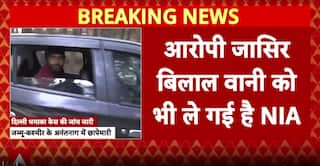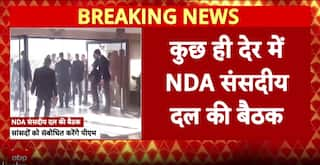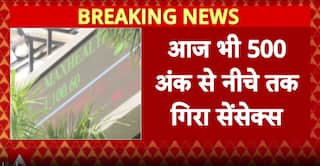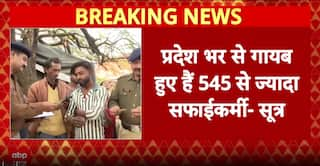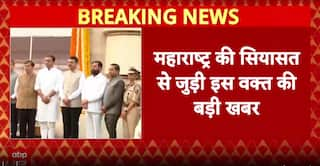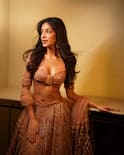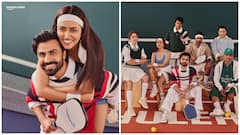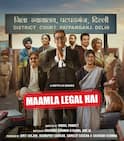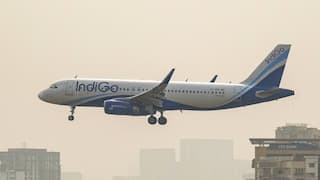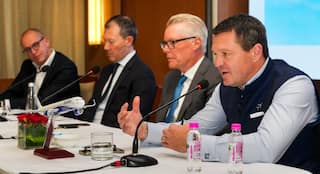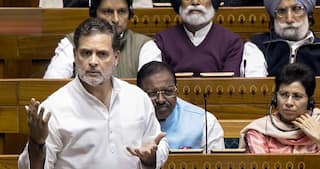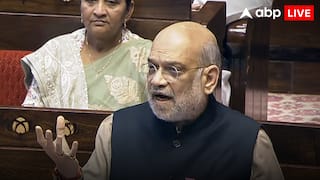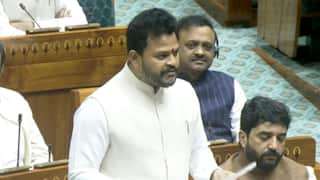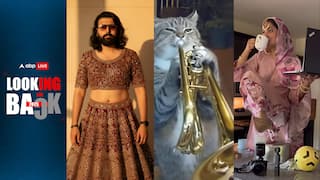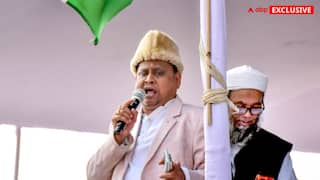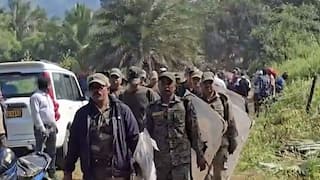EXCLUSIVE: Not Going For Small Roles; Don't Want To Do Disservice To My Career, Says Vijay Varma
Vijay Varma has ended up establishing himself in the industry by making the most of every brief role and carving out a niche for his own career.

New Delhi: Vijay Varma was clearly making small attempts to break through to the pinnacle of the Hindi film business with his appearances in films like 'Pink', 'Monsoon Shootout', 'Manto', and many others. The 'Gully Boy' actor comes to mind when talking about exceptional talent that is hiding in plain sight. Vijay has ended up establishing himself in the industry by making the most of every brief role and carving out a niche for his own career. At this point, he has an abundance of characters to his credit that seem to have been flawlessly depicted by the actor.
Gulshan Devaiah, Sohum Shah, and Vijay Varma, the stars of the now-famous crime thriller 'Dahaad', spoke exclusively with ABP Live about their experiences working on the project. Varma recounted his ten-year journey in Bollywood, from picking the role of Moeen in Zoya Akhtar's 'Gully Boy' that changed his career to portraying menaced roles brilliantly.
You perfectly fit into the mould of "men written by women," but always as an antagonist. How does that keep happening?
I have no idea. You should ask the women. And somehow I've managed to work with half the women directors in the industry right now. I enjoy the characters that women write about. For men. For me. I like their perspective. I just hate to generalise because every director is unique. I feel like the term "male director or female director" doesn't exist in my understanding of a director. It's not like I'm going to go see a female doctor today. So it's just a profession that they do, but I've been lucky enough to be part of their creations, Zoya in Gully Boy or for that matter. With Mira on A Suitable Boy and Nandita on Manto in a small cameo. I feel like the way they bring insights into a situation, a character, or a relationship is very interesting. And I don't think I would have been able to play such devious men had it not been for a solid woman guiding me through it.
From Mira Nair to Zoya Akhtar, you've mainly collaborated with female filmmakers. Is it any different from having men in the director's chair?
I don't particularly see a difference. There's no difference that I completely notice. I have worked with directors like Shoojit Sircar and Imtiaz Ali who are extremely kind, intuitive, and creative. So in my head, there is absolutely zero distinction between a female director and a male director, but somehow I feel safer playing evil men with female directors.
Darlings to Dahaad, your on-screen characters have been quite dark; does that take a toll on you as an actor?
When a creator makes this character, it's supposed to be a menacing person. But the maker is very excited about this character. The maker is in love with this character because it's their creation. So I fit into that because I feel a great sense of love that they have for the part because the part is important to tell the story. And the effects that the part should generate are also very exciting for them. So I feel like a playful kid when I'm creating these characters with them. It takes a lot to play someone like Anand, who is a classic psychopath. But we are like kids. We want to build sandcastles, houses of cards, and everything else.
If not Anand, which character would you prefer to play?
Let's be honest, the most intriguing part is Anand because it's shrouded in mystery. So of course, it is the most interesting character for me as an actor, but when I watched the show, I was mesmerised by the work of all my colleagues, particularly Gulshan’s portrayal of Devi Lal Singh. I was drawn to all their stories, and I feel like right now, when I look at them, nobody could have done it better than the person who is actually doing it.
The way that cops are portrayed in cinema is also being shifted by shows like Dahaad. Does their transformation from supercops to ordinary folks seem like a much-needed change?
It makes it so much more human, isn't it? It's a fictional story, but we still want people to get drawn into it. It’s high time that we show cops as people first. Because usually, it's a person who is doing a job. And we've done some kind of disservice by just assuming that a lawyer is a lawyer, a doctor is a doctor, and a cop is a cop. So we focused on the individuals. And I think that's the beauty of the show.
Although Gully Boy's release made you a household name, when did you first feel like you had arrived?
I think once the film came out, I figured, "Oh, I matter". Before that, I was a bit low on fortune and on several other factors. It just wasn't really my best phase. So even when I was shooting it, I thought, I'm glad I'm doing this film because it will get me another film, hopefully. But when the film came out and was received well, people loved it. I didn't think much of my character's impact because it's a crowded film in terms of several incredible actors doing far bigger things in the film. So I didn't think much about my contribution to the film. But I was pleasantly surprised that they took a liking to this part in a way that completely changed the course of my career.
The versatility of your body of work is quite evident. Are these projects being chosen on purpose? When choosing a movie or show, what is your main concern?
One of the key factors is that I have to work with directors and makers whose work I'm drawn to. I don't want to be around a maker whose work doesn't speak to me. If I look up to their work and they've given me a role and a story that is of any substance, then I'm on. Now there's another added criterion: I try not to repeat what I did before. Also, I'm not going for smaller parts because I give too much of my time; I do one project at a time. So I don't want to do a disservice to my career by doing something that I don't feel is important right now.
The OTT wave has changed the content landscape by opening up tonnes of opportunities for fresh talent. To what extent do you believe it has benefited actors?
It's been a very fertile time for actors and creative people. Not just actors, but anybody who's working in the industry because they're able to experiment with their crafts. And more than that, I feel like it's the audience who's winning the most. Finally, there are shows and stories that would otherwise not make it to conventional cinema that are getting space to be made or getting audiences. So I think it's a win-win situation for both audiences and creators.
In what ways did Cannes stand apart between your visits in 2013 and 2023?
I was just a child in a candy store. I was there for two days, and I barely remember. You know what I ate or did, but I just remember being dragged from one place to another because we had too many activities lined up. But this time, I was able to space it out a bit and breathe a bit. And I was able to enjoy it. Because I was relaxed. I was celebrating the success of Dahaad and also representing the Indian delegation at the festival. It was exactly a decade ago, on May 18, 2013, when my film, I think, was played. So it was just a very strong tick mark on the clock over a decade passing. So it was a bit of an emotional and happy moment for me.
Your idea of India in 2047: 100 years of independence.
We should be able to become global players in the movie since the world is leaning more towards inclusivity. I just dream about a future where our films are released across the globe. So I feel like that will become a very fair playground, and we'll have the appropriate budgets to cater to a worldwide audience.
ALSO READ: EXCLUSIVE: Gulshan Devaiah Speaks On 'Dahaad' Success, Says 'I Keep Rowing Over An Endless River'











